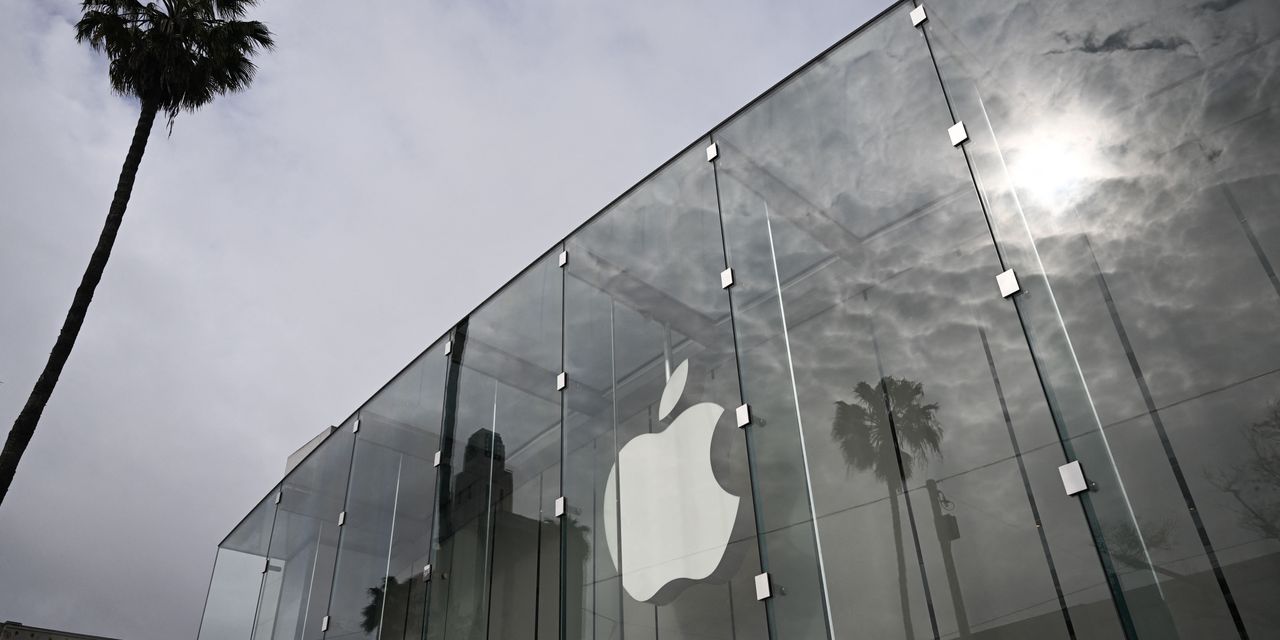Big Tech has rescued the
S&P 500
this year, while most other stocks have faltered. That may mean that opportunity exists outside of tech stocks, though certain risks should keep investors cautious.
The S&P 500’s gain of almost 8% so far this year is because Big Tech names such as
Apple
(ticker: AAPL) and
Microsoft
(MSFT), for example, have gained more than 30% each this year. Their combined market values are just over $5 trillion, almost 15% of the S&P 500’s aggregate market value. The index’s level is weighted by market value, so the share-price movements of these highly valued companies have a heavy influence on the index’s movement.
The two main drivers behind Big Tech’s gain are lower bond yields and better-than-expected earnings. Sales and earnings are benefiting from artificial intelligence, which is driving product enhancements. Lower yields on long-dated bonds make future cash profits more valuable—and these growing companies are still valued on the basis that a bulk of their profits will come many years in the future.
Meanwhile, the rest of the market has performed rather poorly. The
Invesco S&P 500 Equal Weight
exchange-traded fund (RSP) is about flat for the year. This ETF weights each stock in the index equally, stripping out the outsize effect of Big Tech and showing the movement of the average stock. It has underperformed the standard market value-weighed S&P 500 since the end of 2022—and the degree of underperformance has been almost as stark as it has been in any stretch in the last couple of years, according to Morgan Stanley.
The difference is that most stocks outside of technology have been dented by a an expected reduction in economic demand. The market is jittery about the delayed impact of the Federal Reserve’s short-term interest-rate increases. Plus, recent banking problems look set to further crimp lending and spending.
There’s good news in all of this for those who are interested in non-tech names. The equal-weighted S&P 500 ETF’s underperformance won’t likely get much worse from here, considering recent trends. After all, the ETF is at a price level relative to the conventional S&P 500 that’s about as low as it’s been in the past couple of years.
So if the market rises, most non-tech stocks could outperform Big Tech—and the conventional S&P 500. If both the market and tech fall, maybe the average stock can hold its ground better. That’s especially true if the deterioration to economic growth is almost over. Already, gross domestic product growth and the rate of inflation have both declined some. Investors worry there’s more destruction on the way, but if the economy stabilizes by, say, the end of this year, the majority of stocks could start to see substantial gains, especially if the Fed stop hiking rates.
These are important themes to monitor for those who are gun-shy about buying Big Tech stocks after their incredible run upward.
Write to Jacob Sonenshine at [email protected]
Read the full article here



